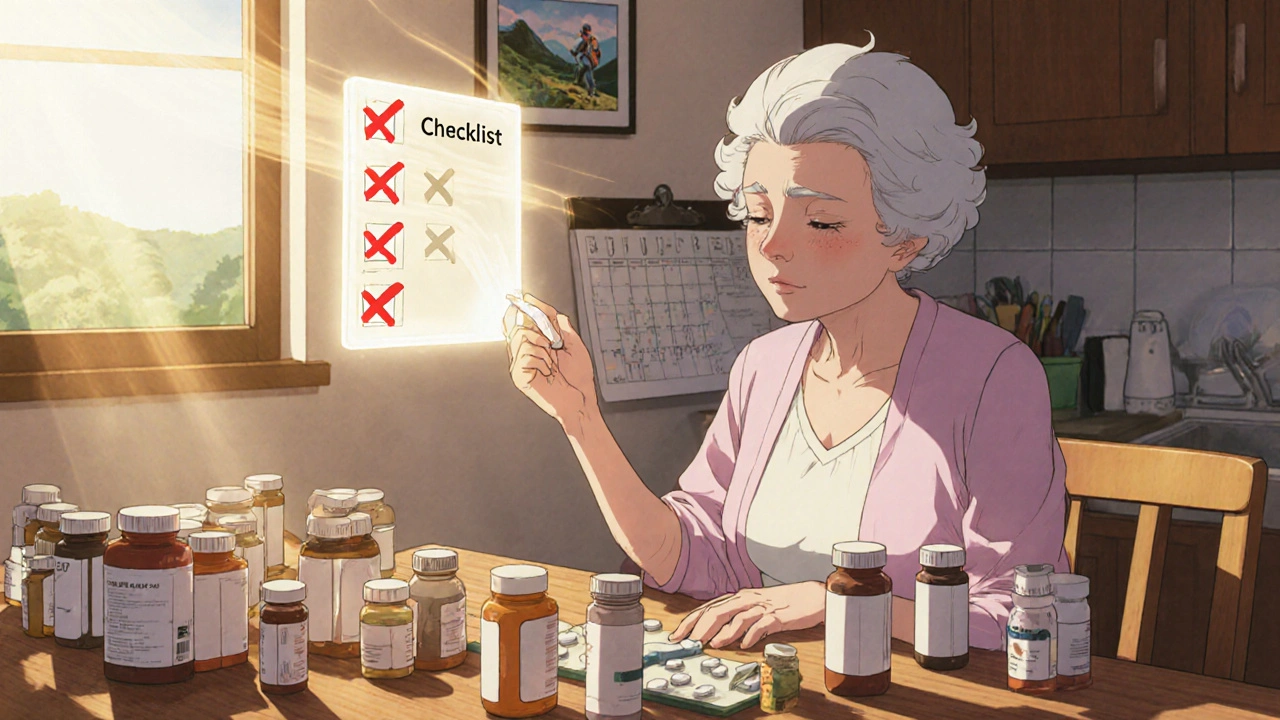

When you're over 65, some common prescriptions can do more harm than good. The Beers Criteria, a list of potentially inappropriate medications for older adults, updated regularly by the American Geriatrics Society. Also known as the AGS Beers List, it's not a ban—it's a warning system designed to protect seniors from side effects that can lead to falls, confusion, kidney damage, or even death. This isn't theoretical. Studies show nearly one in three older adults in the U.S. is prescribed at least one drug on this list.
The Beers Criteria isn't just about naming bad drugs. It's about understanding polypharmacy, when seniors take five or more medications at once, increasing the chance of dangerous interactions. A drug that’s fine for a 30-year-old might crash an 80-year-old’s blood pressure, blur their vision, or scramble their memory. Common offenders include certain antihistamines, benzodiazepines, and older types of painkillers. Even drugs like proton pump inhibitors, often taken long-term for heartburn, can weaken bones and increase infection risk in older people. The drug interactions, how one medication affects another in the body, especially in seniors with reduced liver or kidney function are where things get dangerous—like mixing a sleep aid with blood pressure meds and ending up in the ER.
What makes the Beers Criteria so useful is that it’s practical. It doesn’t just say "don’t use this." It tells you why, who’s most at risk, and what safer alternatives exist. For example, instead of using diphenhydramine for allergies or sleep, a doctor might suggest a non-sedating antihistamine. Instead of long-term benzodiazepines for anxiety, behavioral therapy or low-dose SSRIs might be better. The list also flags drugs that should be avoided in people with specific conditions—like avoiding certain anticholinergics if you have dementia, or steering clear of NSAIDs if your kidneys are already struggling.
Many seniors aren’t even aware these risks exist. They take what’s prescribed without asking if it’s still right for them. But your body changes as you age—your liver processes drugs slower, your kidneys filter them less efficiently, and your brain becomes more sensitive to side effects. That pill you’ve been taking for years might now be doing more harm than good. The elderly medication safety, the practice of choosing drugs that minimize risk and maximize benefit in older adults isn’t about cutting meds—it’s about smart choices. It’s about asking, "Is this still necessary?" and "Is there something safer?"
Below, you’ll find real-world guides that connect directly to the Beers Criteria. You’ll see how lab tests help track kidney function to avoid dangerous dosing, how certain drugs like lithium or clozapine need close monitoring, and how even something as simple as a laxative can trigger serious problems in older bodies. These aren’t abstract medical concepts—they’re daily realities for millions. If you or someone you care about is on multiple medications, this collection gives you the tools to ask better questions, spot red flags, and work with your doctor to stay safe without giving up the care you need.

Many seniors take too many medications that no longer help-and may be harming them. Learn when to stop, how deprescribing works, and what to ask your doctor to improve safety and quality of life.